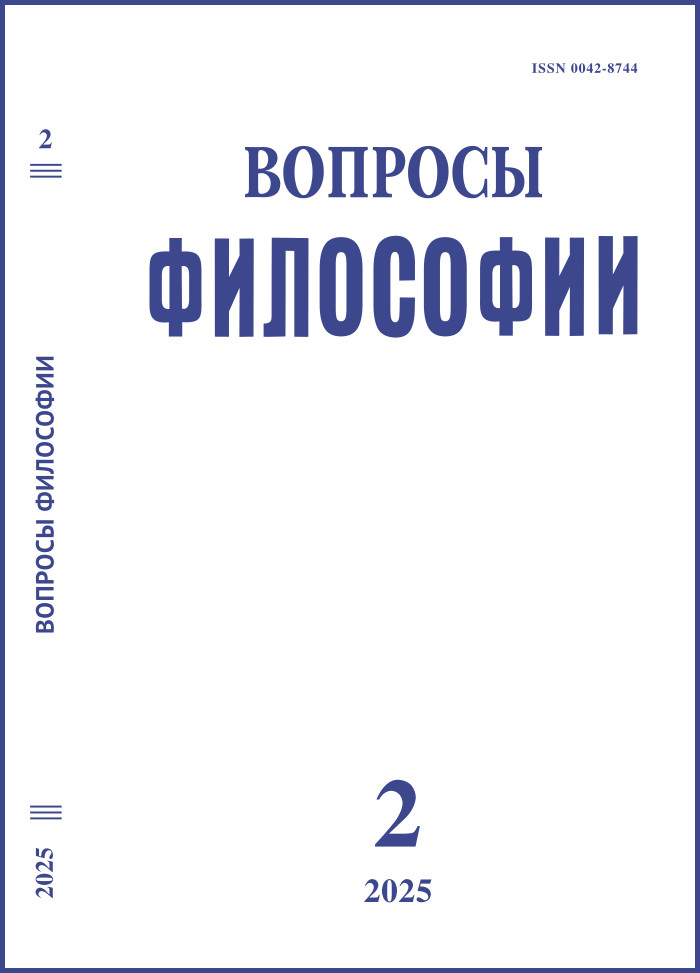Феноменологическое обновление метафизики? Бернхард Вельте vs Семен Франк
DOI:
https://doi.org/10.21146/0042-8744-2025-2-179-190Ключевые слова:
метафизика, феноменология, всеединство, священное, доказательства бытия Бога, Б. Вельте, Р. Отто, С. ФранкАннотация
Темой статьи выступает сравнительное изучение мышления Откровения в русской философии и немецкой католической теологии на примере трансформации классической метафизики в рамках использования, развития, предвосхищения у С. Франка и Б. Вельте прежде всего феноменологической философии Э. Гуссерля и фундаментальной онтологии М. Хайдеггера. Раскрытие предложенной авторами темы предполагает сопоставление феноменологии священного у Р. Отто и Б. Вельте, анализ феноменологического смысла доказательств бытия Бога Фомы Аквинского у Вельте и, наконец, сравнительное исследование проектов обновления метафизики у Вельте и Франка. Авторы приходят к выводу, что Франк и Вельте жертвуют природой классической метафизики (неоплатонической и томистской) ради
создания самобытных вариантов метафизики неклассической. Вельте, переосмысляя метафизику в ключе феноменологической онтологии священного, актуализирует ее смысл в экзистенциальном, диалогическом, личностном, то есть религиозном мышлении. Франк пытается синтезировать трудно соединимые и критически настроенные к классической метафизике стратегии познания, а именно метафизику субъекта Декарта, философию интуитивизма Бергсона, феноменологию Гуссерля и другие.

